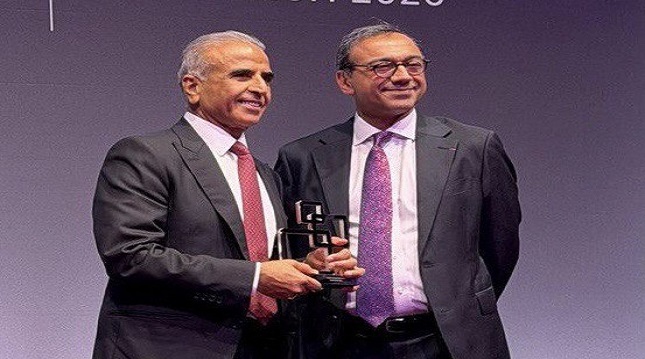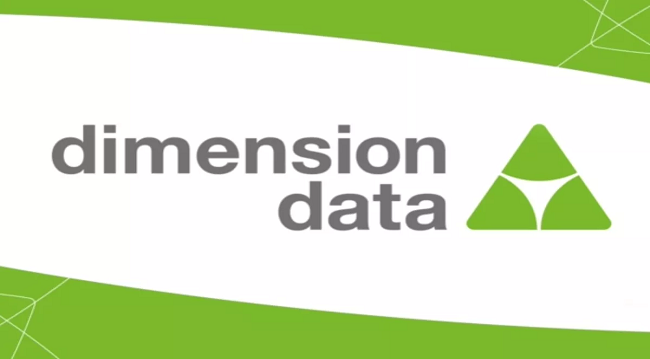Telecom
NCC Spreads Digital Dividends to Varsities, Others via ADAPTI, DAP

AS part of its deliberate digital inclusion policy to address digital divides across a broad spectrum of the society generally and the school system in particular, the Nigerian Communications Commission (NCC) recently took digital dividends to some institutions of higher learning in the country.
These schools included Ekiti State University, Ado Ekiti, The Polytechnic, Ibadan, Imo State Polytechnic, Umuagwo, Federal Polytechnic Nekede, Ahmadu Bello University, Zaria, University of Benin, Government Junior Secondary School, Jabi, Abuja, Katsina State College, Katsina, Government Secondary School Dan Musa, Katsina State, among others.
The NCC acknowledged the gap in ICT services early enough and opted to cushion these needs by taking services, equipment and infrastructure to these centres of learning.
The Commission through the Advanced Digital Awareness Programme for Tertiary Institutions (ADAPTI) has been able to empower several of these higher institutions by donating digital centres, computer laboratories fitted with laptops and internet connectivity, generating sets as part of the digital dividends.
While secondary schools benefit through the Digital Awareness Programme (DAP). DAP ensures that teachers are empowered first to pass knowledge to the students.
DAP promotes hands-on digital empowerment by creating an environment where students have direct knowledge of usage of computers and ICTs in support of their studies.
Dr. Eugene Juwah, executive viice chairman (EVC) explained that this is one of the ways we can reach the unreached and serve the unserved and underserved members of the society.
Juwah further assured that many more institutions and schools will be covered especially now that the broadband revolution has begun. “Broadband will make a world of difference”.
Mr. Tony Ojobo, director, Public Affairs, in a statement explained that to continue the distribution of digital knowledge, and awareness in schools and support students in acquiring knowledge of computer in their studies, the Commission donated ICT/Telecommunications books to Ekiti State University, recently.
Juwah specifically said the Commission wants to put smiles on the faces of students and the school system.
The EVC who was represented by Ms. Josephine Amuwa (Director, Policy Competition and Economic Analysis), stated in Ekiti that one of the core functions of the NCC is the implementation of programmes and plans that promote the development of the communications industry and in order to achieve this, the NCC has implemented several capacity building initiatives to enhance the knowledge base of the participants in the telecoms industry in Nigeria.
Some of these initiatives include the establishment of the Digital Bridge Institute in 2004 in order to contribute to the creation of knowledge-based information society in Africa, through human resource capacity building in the Information and Communications Technology (ICT) sector.
The EVC stated that the Commission in 2005 also established the NCC library for use of researchers and undergraduate students from various tertiary institutions across the country.
He further explained that higher institutions in Ekiti State, which fall within South West geo-political zone, have not benefitted from the National Books Donation Initiative of the Commission since inception of the project which is carried out in phases, Hence the need to begin from the Ekiti State University.
Eighty Seven ICT/Telecom engineering books on behalf of the EVC were donated by Mrs. Biodun Olujimi, commissioner of NCC, and received by Prof. Oladipo Aina, Vice Chancellor of Ekiti State University.
The Vice Chancellor thanked the Commission for contributing ICT/ Telecommunications books to the University which will impact and add value to the lives of the students.
The Commission has also taken the ADAPTI project to The Polytechnic, Ibadan Oyo State, where 110 laptops were commissioned.
The Advanced Digital Awareness programme for Tertiary Institutions (ADAPTI) is one of the programmes through which the NCC strives to bridge the digital divide through the provision of computers in order to equip lecturers and also to improve the skills of students.
The EVC who was represented by the NCC zonal coordinator in Ibadan, Mr. Banji Ojo in his speech stated that The Polytechnic, Ibadan was among the 52 beneficiaries of the ADAPTI project of the Commission in 2013, and that more than 222 institutions of higher learning across the country have so far benefitted from ADAPTI since it began in 2008.
Speaking at the event, Juwah stated that the key objectives of these programmes are to prepare the nation for a digital tomorrow and equip the youth with the necessary skills to tap into the potentials of the digital age and in the case of ADAPTI, it is aimed at improving the resource persons in the process of impacting knowledge. The EVC further explained that the Commission is committed to assisting the nation in the quest for ICT penetration through ADAPTI.
Hon. Oyetunde Ojo, chairman of the House Committee on Communications, urged the students to take advantage of the computers, which were commissioned, advising that the laptops are for the use of lecturers to improve their administrative skills.
He also advised the students of The Polytechnic to stay away from crimes such as cybercrime and focus on their education in order to contribute to the nation’s wellbeing.
The Digital Awareness Program (DAP) is a special intervention programme by the Commission to address the digital information knowledge gap in the country especially among the teeming youthful population.
The strategy in this programme is to expose schools and colleges to Information and Communications Technology (ICT) awareness, usage and application by facilitating access to ICT tools.
Under the project, selected institutions of learning spread across the country are equipped with computer laboratories fully installed with internet facilities and their teachers exposed to ICT training in order to equip them to teach their students, Ojobo further explained in the statement.
By the last count, the DAP Project has supported 229 secondary Schools across the six (6) geopolitical zones of Nigeria, including the Federal Capital Territory with the provision of twenty one (21) desktop computers, Local Area Network, printers, scanners, VSAT dish and deployment of one year bandwidth subscription for Internet access.
These facilities are complemented with standby generators and a special accommodation built for that purpose; thus aggregating everything into a fully kitted Computer Laboratory.
The programme also entails human capacity building and managerial training for key personnel in charge of the Centres from the beneficiary institutions.
As part of the Commission’s Corporate Social Responsibility (CSR) to facilitate ICT Awareness in secondary schools and support students in acquiring knowledge of computer in their studies, the Commission commissioned two projects in Katsina state recently.
One of the beneficiaries is Government Secondary School, Dan Musa, Katsina State
A newly constructed computer laboratory with 20 Desktop computers with internet access, Generator Set, Air conditioners, NCC branded window blinds, was commissioned at the school.
Alhaji Ibrahim Shehu Shema, executive governor of Katsina State, was represented by Alhaji Suleiman Nuhu Kuki, special adviser (Science and Tech) at the event.
The projects were facilitated by Alhaji Jamilu Mohammed Dan Musa, a former commissioner of Water Resources in the State. So many stakeholder graced the occasion.
Katsina College, Katsina State also benefitted
A new constructed Computer Laboratory, 20 Desktop Computers with internet access, Generator Set, Air-conditioners, NCC branded window blinds were commissioned at Katsina College, Katsina, a prestigious institution and an Alma Mata of so many prominent Nigerians.
In Imo State a constructed computer laboratory, installed generator, air conditioners and branded window blinds at Omuma Secondary Technical School in Oru East LGA was one of the DAP projects while ADAPTI projects with 110 laptops were supplied and installed at each of the following locations:
.Imo State Polytechnic, Umuagwo
. Skills Acquisition Centre, Orlu (a campus of Imo State Polytechnic)
.St. Damian School of Nursing, Okporo
.Federal Polytechnic Nekede
These are some of the initiatives by the Commission to spread digital awareness through digital inclusion, Ojobo added.
Telecom
Sunil Bharti Mittal Conferred GSMA Lifetime Achievement Award for Transforming Global Telecommunications

The GSMA has conferred a rare Lifetime Achievement Award on Sunil Bharti Mittal, Founder and Chairman of Bharti Enterprises, recognising his role in reshaping the global telecommunications landscape and expanding connectivity across operators, governments, businesses and billions of consumers worldwide.

Bestowed on only a handful of industry leaders in the GSMA’s history, the honour recognises contributions that have left an enduring and defining mark on the global communications ecosystem.
The award was presented at Mobile World Congress in Barcelona in the distinguished presence of His Majesty Felipe VI, the Prime Minister of Spain, Pedro Sanchez, the President of Catalonia, Salvador Illa, and global industry leaders.
A visionary in the telecom sector, Sunil Bharti Mittal has built Bharti Airtel into one of the world’s leading mobile operators, with operations across India and Africa, ranking among the top three globally and serving over half a billion customers.
He pioneered the expansion of mobile services across emerging markets and served as Chairman of the GSMA from 2017 to 2018, where he championed policies that encouraged investment and innovation while strengthening the industry’s commitment to connecting the unconnected and advancing digital inclusion.
He was previously honoured with the GSMA Chairman’s Award in 2008 and again in 2016 for his outstanding contribution to the growth and development of the global mobile industry and was felicitated at Mobile World Congress in February 2019 in recognition of his Chairmanship.
On receiving the award, Sunil Bharti Mittal said, “I am deeply honoured to receive this recognition and sincerely thank the GSMA for this award. I accept it not only as a personal milestone, but as a tribute to India’s telecom journey, the collective spirit of Bharti, and the rise of Indian telecom companies on the global stage.
Equally the award reflects the progress of an industry that has connected billions and belongs to the customers we serve, the teams who built our institutions, and the partners who believe in the transformative power of connectivity.
Telecommunication is a force that expands opportunity, places essential services in the palm of every individual and unlocks human potential. Helping shape its evolution into a powerful accelerator of modern progress has been a privileged responsibility. As innovation accelerates, we will continue to work with our partners & stakeholders to ensure that growth advances equity and creates lasting opportunity for generations to come.”
The Lifetime Achievement Award is a rare honour, bestowed only on select individuals whose leadership and innovation have left an enduring mark on the industry.
Telecom
Why Digital Trust Matters: Secure, Responsible AI for African SMEs?

By Kehinde Ogundare, Country Head, Zoho Nigeria
For years, security for SMEs across sub-Saharan Africa meant metal grilles and alarm systems. Today, the most significant risks are invisible and growing faster than most businesses realise.

Kehinde Ogundare
Artificial Intelligence has quietly embedded itself into everyday operations. The chatbot responding to customers at midnight, the system forecasting inventory requirements, and the software identifying unusual transactions are no longer experimental technologies. They are becoming standard features of modern business tools.
Last month’s observance of Safer Internet Day on February 10, themed ‘Smart tech, safe choices’, marked a pivotal moment. As AI adoption accelerates, the conversation must shift from whether businesses should use AI to how they deploy it responsibly. For SMEs across Africa, digital trust is no longer a technical consideration. It is a strategic business imperative.
The evolving threat landscape
Cybersecurity threats facing sub-Saharan African SMEs have moved well beyond basic phishing emails. Globally, cybercrime costs are projected to reach $10.5 trillion this year, fuelled by generative AI and increasingly sophisticated social engineering techniques. Ransomware attacks now paralyse entire operations, while others threats quietly extract sensitive customer data over extended periods.
The regional impact is equally significant. More than 70% of South African SMEs report experiencing at least one attempted cyberattack, Nigeria faces an average of 3,759 cyberattacks per week on its businesses, Kenya recorded 2.54 billion cyber threat incidents in the first quarter of 2025 alone, whilst Africa loses approximately 10% of its GDP to cyberattacks annually.
The hidden risk of fragmentation
A common but often overlooked vulnerability lies in digital fragmentation.
In the early stages of growth, SMEs understandably prioritise affordability and agility. Over time, this can result in a patchwork of disconnected applications, each with separate logins, security standards, and privacy policies. What begins as flexibility can involve into operational complexity.
According to IBM Security’s Cost of a Data Breach Report, companies with highly fragmented security environments experienced average breach costs of $4.88 million in 2024.
Fragmented systems create blind spots, each additional data transfer between applications increases exposure. Inconsistent security protocols make governance harder to enforce. Limited visibility reduces the ability to detect anomalies early. In practical terms, complexity increases risk.
Privacy-first AI as a competitive differentiator
As AI capabilities become embedded in business software, SMEs face a choice about how they approach these powerful tools. The risks are not merely theoretical.
Consumers across Africa are becoming more aware of data rights and willing to walk away from businesses that cannot demonstrate trustworthiness. According to KPMG’s Trust in AI report, approximately 70% of adults do not trust companies to use AI responsibly, and 81% expect misuse. Meanwhile, studies also show that 71% of consumers would stop doing business with a company that mishandles information.
Trust, once lost, is difficult to rebuild. In the digital age, a single data leak can destroy a reputation that took ten years to build. When customers share their payment details or purchase history, they extend trust. How you handle that trust, particularly when AI processes their data, determines whether they return or take their business elsewhere.
Privacy-first, responsible AI design means building intelligence into business systems with data protection, transparency and ethical use embedded from the outset. It involves collecting only necessary information, storing it securely, being transparent about how AI makes decisions, and ensuring algorithms work without compromising customer privacy. For SMEs, this might mean choosing inventory software where predictive AI runs on your own data without sending it externally, or customer service platforms that analyse patterns without exposing individual records. When AI is built responsibly into unified platforms, it becomes a competitive advantage: you gain operational efficiency whilst demonstrating that customer data is protected, not exploited.
Unified platforms and operational resilience
The solution lies in rethinking digital infrastructure. Rather than accumulating disparate tools, businesses need unified platforms that integrate core functions whilst maintaining consistent security protocols.
A unified approach means choosing cloud-based platforms where functions share common security standards and data flows seamlessly. For a manufacturing SME, this means inventory management, order processing and financial reporting operate within a single security framework.
When everything operates cohesively, security gaps diminish and the attack surface shrinks. And the benefits extend beyond risk reduction: employees spend less time on administrative friction, customer data stays consistent, and platforms enable secure collaboration without traditional infrastructure costs.
Safer Internet Day reminds us that the digital world requires active stewardship. For SMEs across the African continent who are navigating complex threats whilst harnessing AI’s potential, digital trust is foundational to sustainable growth. Security, privacy and responsible AI are essential characteristics of any technology infrastructure worth building upon. Businesses that embrace unified, privacy-first platforms will be more resilient against cyber threats and better positioned to earn and maintain trust. In a market where trust is currency, that advantage is everything.
Telecom
Dimension Data Nigeria Secures ₦20Billion Funding to Strengthen Digital Infrastructure

Dimension Data Nigeria has raised ₦20 billion (approximately $13.7 million) through a bond programme under Dimension Data SPV Funding Plc, following approval from the Securities and Exchange Commission of Nigeria.

This initiative aims to strengthen Nigeria’s digital infrastructure by addressing gaps in fibre coverage, limited enterprise connectivity, and increasing demand for cloud, fintech, digital services, and Artificial Intelligence.
The integrated IT solutions provider stated that the capital will be used to fund long-term investments in expanding network capacity, enhancing resilience, and supporting carrier-grade and enterprise services as data consumption continues to accelerate nationwide.
Speaking at a documentation and regulatory clearances event in Lagos, managing director, Gbenga Olabiyi, said sustained infrastructure investment is critical to maintaining competitiveness and enabling future growth.
He noted that strategic upgrades would help future-proof operations, reduce service disruptions, and allow the company to scale efficiently as business and consumer demand for cloud, fintech, and other digital services intensifies.
The bond programme is backed by private equity firm Mbavaa Partners Limited, whose managing partner, Shatse Kakwagh, described the transaction as a milestone that unlocks long-term capital for expansion.
He highlighted that strong ratings and an oversubscribed first issuance show investor confidence in Dimension Data’s execution and growth potential.
The fundraising comes as Nigeria confronts persistent infrastructure gaps, including limited metro and last-mile fibre coverage and rising enterprise connectivity needs.
Government intends to deploy 90,000 kilometres of fibre nationwide under Project Bridge aim to expand internet penetration and lower access costs.

 E-Financial1 day ago
E-Financial1 day agoMutual Benefits Assurance Reaffirms Full Regulatory Compliance, Enhanced Governance

 E-Financial1 day ago
E-Financial1 day agoIran-Israel-US Conflict and CBN’s FX Gains: A Stress Test for Nigeria’s Monetary Stability

 General News1 day ago
General News1 day agoSERAP Asks FCCPC to Investigate Google, Meta, Others over Alleged Rights Abuses

 General News1 day ago
General News1 day agoJAMB Uncovers AI-Driven Fraud Targeting UTME Candidates, Warns Parents

 News1 day ago
News1 day agoFlashChange CEO, Bidemi Oke, Urges Startups to Build Strong Governance Structures Early

 News1 day ago
News1 day agoTeamApt, Awabah Partner to Boost Pension Drive for Nigerians

 General News1 day ago
General News1 day agoCapelli Institute Commits to Advancing Trichology in Nigeria

 E-Financial1 day ago
E-Financial1 day agoReps Mull Commission to Regulate Fintech Operations

























